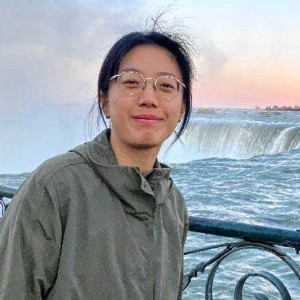Jim Kenyon: Finding the words
| Published: 06-20-2023 8:26 PM |
An 18-year-old Pennie Armstrong had just started training to become a nurse in the early 1960s when she contracted polio, even though she’d been vaccinated against the debilitating, life-threatening virus.
Armstrong spent the next few months at the former Mary Hitchcock Memorial Hospital in Hanover, where the nursing school was located. Not wanting to “get behind” in her studies, she had her hospital bed rolled into the lecture hall for classes.
But polio, which attacks the nervous system, robbed Armstrong of the strength in her arms and legs. Her mobility was limited. A career in medicine (her goal was to eventually become a physician) no longer seemed possible.
Several generations of Windsor High School students, me included, benefited from her misfortune.
After graduating from what is now Castleton University, Armstrong landed a teaching job in Windsor. For 30 years, she was a mainstay in the high school’s English Department.
“I was a very shy kid, and she opened up the world of literature to me,” said Sue Blaise, a 1978 Windsor High graduate who remains a close friend.
The first book that Blaise read in Armstrong’s American literature class was “The Catcher in the Rye.” The copy of J.D. Salinger’s signature work that Armstrong handed her on day one remains on a bookshelf at Blaise’s home in Windsor nearly 50 years later.
Armstrong “ruled with a soft touch and treated everyone equally,” said Blaise, whose maiden name was Hebert. “She met us where we were at.”
Article continues after...
Yesterday's Most Read Articles
 Police seek assistance in locating missing Dartmouth student
Police seek assistance in locating missing Dartmouth student
 City cites Claremont property owner over demolition of building
City cites Claremont property owner over demolition of building
 Editorial: Dartmouth lets protesters know where they stand
Editorial: Dartmouth lets protesters know where they stand
 DHMC union organizers say they have enough signatures to force vote
DHMC union organizers say they have enough signatures to force vote
 A Life: Elaine Chase ‘was a very generous person’
A Life: Elaine Chase ‘was a very generous person’
Armstrong told me her goal was getting every student to “do their best.” Watching a student “light up after a discovery they made from reading “The Great Gatsby” or the “Heart of Darkness” was her reward, she said.
Martha Townsend, a 1979 Windsor High graduate, asked Armstrong to write her a recommendation for college. After graduating from Middlebury, Townsend embarked on her own teaching career, starting in the English department at Lebanon High School. She’s now an associate professor at the University of Southern California, where she teaches writing in the School of Engineering.
“Every student in Pennie’s classroom felt valued,” Townsend recalled in a recent phone interview. “They knew she was all in on them.”
Along with teaching, Armstrong exhibited a love and flair for writing, particularly poetry. She’s a regular contributor to Plain Facts, a monthly newsletter in Plainfield, her home for more than three decades.
Nancy Norwalk, the newsletter’s editor, came up with the idea of making a self-published book of Armstrong’s works to share with the Plainfield community and beyond.
To celebrate, the Friends of Philip Read Memorial Library is hosting a book-signing reception on Sunday at Plainfield Town Hall from 4 to 6 p.m. The soft-covered books, just off the press, are free. Any contributions will go to charity, including the Upper Valley Humane Society.
“Kiss the Joy …” (the title comes from a William Blake poem) is the 80-year-old Armstrong’s autobiography as much as a book of poetry.
Norwalk speculates that “people can relate Pennie’s poetry to feelings or thoughts in their own lives.”
Armstrong writes — sometimes with a humorous bent — about growing up in central Vermont, where her grandparents had a farm. Her grandmother outlived her husband and most of her friends “despite her famous sweet tooth and secret fondness for tobacco.”
After her funeral, grandchildren gathered outside Vera Ruth’s bedroom window, “armed with unfiltered Chesterfields and chocolate-covered cordials and we attempted an ‘appropriate’ toast. We coughed and we laughed, and we cried. Mostly we coughed.”
After recovering from polio, she spent a summer taking literature classes at Norwich University while living at a nearby boarding house.
One professor, in particular, didn’t embrace having Armstrong and another woman in his class at the military school, which didn’t go coed until the 1970s.
“I teach at a military university because I have no interest in teaching women,” he announced one day.
“I did not tell my parents,” Armstrong wrote. “We were a patriotic family; No need to disappoint them.”
(Armstrong is too polite to mention Norwich University by name in her poem about the experience, but I’m not.)
In everyday conversations, Armstrong “doesn’t talk a lot about herself,” Norwalk said. She learned about Armstrong’s bout with polio and struggle to walk again the same way I did — from reading her poetry.
“Decades of physical therapy later, my ability to walk is lacking in both coordination and grace,” Armstrong wrote in 2017, “but I am forever grateful for every step I take.”
■
Hanover and Norwich school officials have backed off from requiring educational assistants in the towns’ four schools to make up four “snow days” by attending professional development sessions this week.
Dresden Superintendent Jay Badams informed the support staff via email on Friday that an agreement reached with the employees’ union no longer requires ed assistants to show up for work now that students have left for the summer.
But there’s a catch.
Ed assistants who don’t attend this week’s extra sessions must reimburse the Dresden and Hanover school districts for the “accidental” overpayments of wages when classes were canceled this year due to bad weather.
It might save the two wealthy towns a few bucks. But playing hardball with $20-an-hour essential workers who are already in short supply isn’t the way to do it.
Jim Kenyon can be reached at jkenyon@vnews.com.

 Developer seeks to convert former Brookside nursing home to apartments
Developer seeks to convert former Brookside nursing home to apartments
